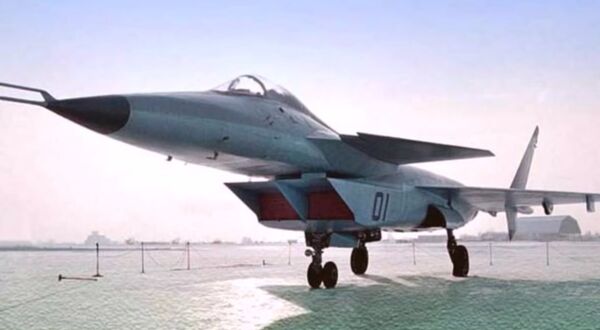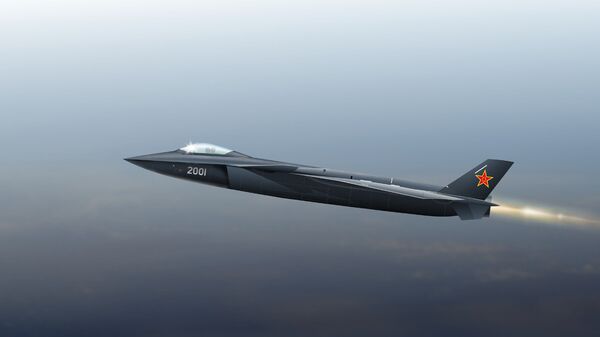The MiG 1.44 was developed in conjunction with the F-22 and could have gone into service in the late nineties but the collapse of the state, along with the difficult economic situation in the country, did not allow this to happen and the project had to be abandoned, with preference given to the ‘Sukhoi’ series.
Despite the fact that the project was canceled in Russia, MiG 1.44 sparked great interest in China as the country is currently developing two of such fifth-generation fighters.
According to the Chinese, the J-20 will become the first full-fledged Chinese fifth-generation fighter but more interesting is that J-20 has a number of obvious resemblances to the MiG 1.44, and according to analysts of the Defence Aviation these similarities are striking.
"Both have a delta wing and a V-shaped tail part, which means that the Chinese while developing the aircraft kept the Russian prototype in mind,” Defence Aviation noted.

However, there is a main difference and that is that the Chinese J-20 at its center has "stealth" technology, whereas, the Russian MiG-1.44 was designed for air combat and eventually turned out, according to the Defence Aviation, very maneuverable for its size.
The Chief Editor of "Arms Export" Andrei Frolov noted that the Chinese have still not reached the level of technology needed to build a fifth-generation fighter.
“In particular, this applies to the engine — powerful and reliable, with variable thrust vector, as well as electronic warfare, which in turn makes our participation in the development of J-20 almost inevitable,” website Warfiles reported Frolov as saying.
In this context, Frolov mentioned the recent deal to sell 24 Russian Su-35, which was sold to the Chinese complete with the latest Russian AL-41F1engines, also known as the "Article 117". China does not need the plane, however the engines are essential for the continuation of the R&D of the fifth generation jets.


